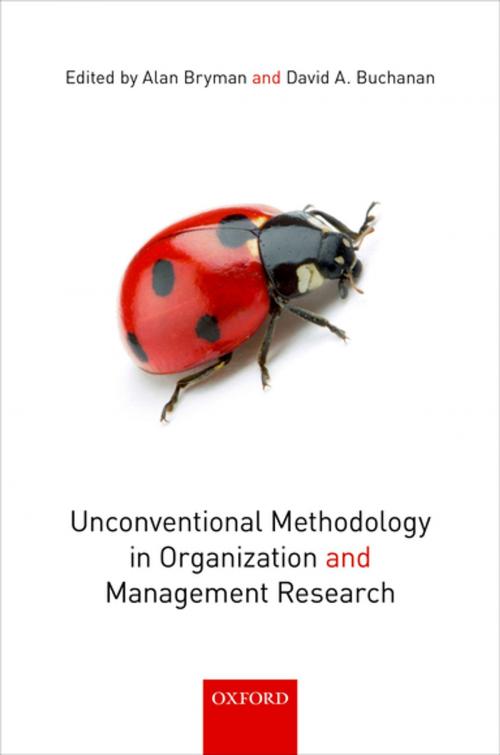Unconventional Methodology in Organization and Management Research
Business & Finance, Human Resources & Personnel Management, Organizational Behavior, Nonfiction, Reference & Language, Reference| Author: | ISBN: | 9780192517333 | |
| Publisher: | OUP Oxford | Publication: | March 21, 2018 |
| Imprint: | OUP Oxford | Language: | English |
| Author: | |
| ISBN: | 9780192517333 |
| Publisher: | OUP Oxford |
| Publication: | March 21, 2018 |
| Imprint: | OUP Oxford |
| Language: | English |
Most researchers in organization and management studies stick to two or three traditional research methods like surveys and interviews. Sticking with the familiar is seen as a safe bet, and innovation is discouraged by academic incentives and rewards. But research participants are now suffering from 'survey fatigue', and using the same old methods runs the risk of generating the same old findings. This book describes twelve unconventional methodologies in organization and management research. These include unconventional research settings and data sources, unconventional research designs and data collection methods, unconventional analytic approaches, and designs and methods that exploit new technology developments. The aim is to encourage dialogue and experimentation with regard to the development of innovative, unconventional approaches to organization and management research. Several commentators have criticized the way in which research methods have become more formulaic, and have argued for greater diversity in research approaches. The methodological perspective that the we adopt shapes our interpretation of the information that we gather. Different methods generate different kinds of information, leading to different ways of understanding the phenomena that we are investigating. Our methods influence our styles of theorizing, ways of thinking and reasoning, and forms of writing and reporting research. This book will be of value to academic researchers in organization and management studies, Doctoral candidates, and Masters students on MBA and similar programmes.
Most researchers in organization and management studies stick to two or three traditional research methods like surveys and interviews. Sticking with the familiar is seen as a safe bet, and innovation is discouraged by academic incentives and rewards. But research participants are now suffering from 'survey fatigue', and using the same old methods runs the risk of generating the same old findings. This book describes twelve unconventional methodologies in organization and management research. These include unconventional research settings and data sources, unconventional research designs and data collection methods, unconventional analytic approaches, and designs and methods that exploit new technology developments. The aim is to encourage dialogue and experimentation with regard to the development of innovative, unconventional approaches to organization and management research. Several commentators have criticized the way in which research methods have become more formulaic, and have argued for greater diversity in research approaches. The methodological perspective that the we adopt shapes our interpretation of the information that we gather. Different methods generate different kinds of information, leading to different ways of understanding the phenomena that we are investigating. Our methods influence our styles of theorizing, ways of thinking and reasoning, and forms of writing and reporting research. This book will be of value to academic researchers in organization and management studies, Doctoral candidates, and Masters students on MBA and similar programmes.















